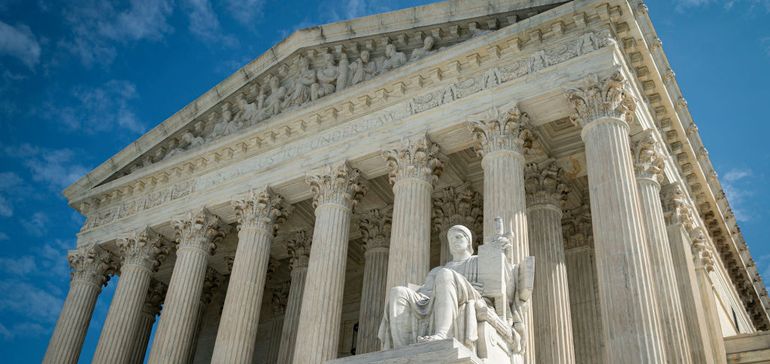
SCOTUS won’t hear challenge to health worker vaccine mandate
Dive Brief:
- The Supreme Court on Thursday declined to hear a challenge brought by healthcare workers to New York’s statewide vaccine mandate that doesn’t include a religious exemption, according to court documents.
- Justices Clarence Thomas, Neil Gorsuch and Samuel Alito dissented, with Thomas writing in an opinion from the dissenting justices that healthcare workers in the state objected to the mandate on religious grounds “because they were developed using cell lines derived from aborted children.”
- Religious organizations have refuted that claim, reiterating that fetal cells were used in the testing and development of such vaccines though the shots themselves don’t actually contain those cells. The Vatican said in a 2020 statement that “it is morally acceptable to receive Covid-19 vaccines that have used cell lines from aborted fetuses in their research and production process.”
Dive Insight:
New York’s Department of Health issued its vaccine mandate in August 2021, requiring healthcare staff at hospitals, long-term care facilities, and other medical settings be vaccinated against the coronavirus.
While the mandate allows medical exemptions for those who said the shot would be detrimental to their health, it did not include a similar religious exemption, prompting 16 healthcare workers to file an emergency application for the high court to block the order in December.
The justices declined to do so then, and again on Thursday said the court will not hear the case.
In December, Gorsuch, Thomas and Alito dissented to that decision as well, with Gorsuch arguing in a 14-page dissent that it violates the First Amendment.
The AMA and the Medical Society of the State of New York released a joint-statement in September voicing support for the state’s vaccine mandate, writing that “the path to ending the pandemic must be based on science, and vaccination is an indispensable part of the solution.”
In Thursday’s decision, Thomas wrote for the dissenting justices that the healthcare workers were “ordered to choose between their jobs and their faith,” and since the court declined to block the mandate in December, every petitioner except one “has been fired, forced to resign, lost admitting privileges, or been coerced into a vaccination,” he wrote.
He also wrote that three federal appeals courts and one state supreme court agreed the mandate is not neutral or generally applicable, while the 2nd U.S. Circuit Court of Appeals and three other federal appeals courts have disagreed.
“This split is widespread, entrenched, and worth addressing,” Thomas wrote.
The court also previously refused to grant relief to healthcare workers in Maine for a similar state requirement and others at Mass General Brigham in Boston challenging that health systems’ mandate based on religious exemptions.